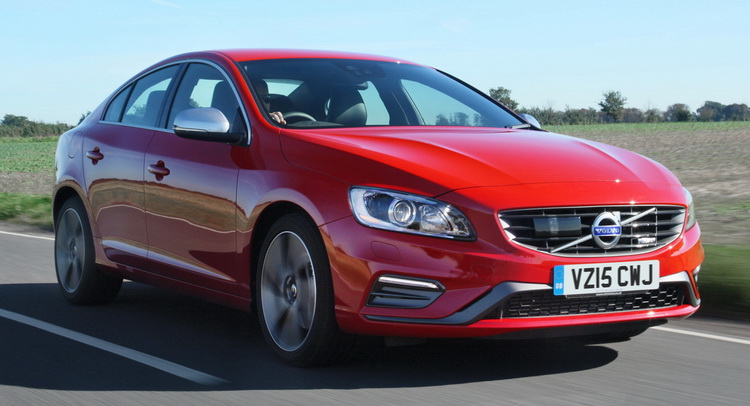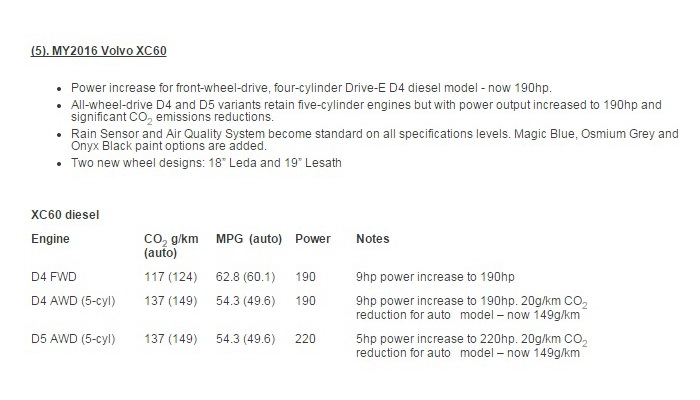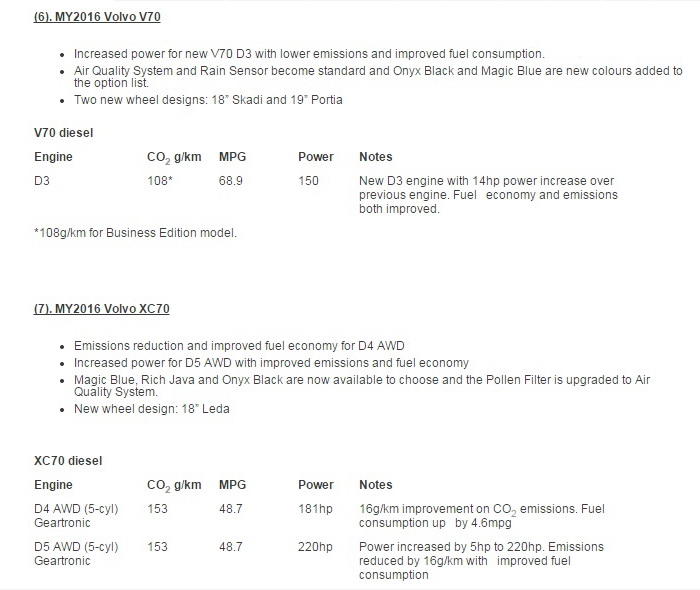Volvo is replacing all the 4-cylinder engines in its FWD models with the Drive-E engine range for the MY2016.
This update will affect the V40, S60, V60, XC60, V70 and XC70 models and will effectively end Volvo’s reliance on engines sourced from other manufacturers. The Drive-E powertrain family was designed in-house with the engines having capacities up to 2.0-litres and four cylinders.
In addition to the D4 and D5 Drive-E versions that were introduced in 2014, Volvo launches the new T2 and T3 petrol versions and the D2 and D3 diesel ones. The new V40 T3 and T4 now uses a 1.5-litre petrol engine with 122hp and 152hp respectively, offered with a six-speed auto as standard. All manual diesel V40s now feature sub-100g/km of CO2 emissions, with the D2 now offering 120hp and the D3 150hp.
The same diesel units appear also in the S60 D2 and D3 with the D4’s power to be increased from 181 to 190hp and the manual petrol T3 using a new 2.0-litre unit with 152hp. However, the automatic T3 version uses the same 152hp 1.5-litre engine from the V40 range.
The V60 Hybrid is now called the D6 Twin Engine to get in line with the naming of the hybrid XC90 and now offers 220hp instead of the 215 of the previous model.
The XC60 range benefits from a small increase in horsepower with the D4 version now offering 9hp more, rated at 190hp and the D5 5hp more, rated at 220hp. The AWD versions continue to use the 5-culinder diesel units but now emit 20g/km less CO2 when paired with an automatic gearbox.
Volvo’s new D3 unit is also fitted in the V70, improving the fuel economy and power figures while the XC70 benefits from updated 5-cylinder engines in the D4 and D5 versions with lower emissions and better fuel economy.
People complaining about the model naming systems of some certain German manufacturers can now leave a comment below.














